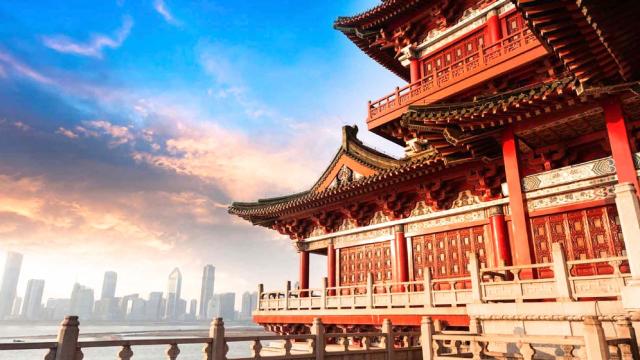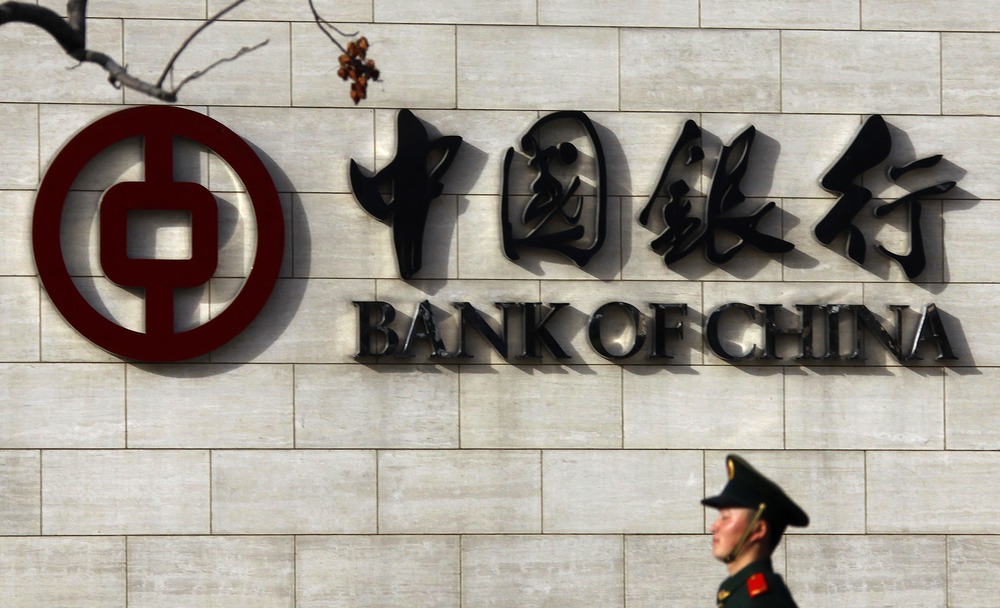
This is the second article in a three-part series focusing on China's transformed role on the world financial stage. Read the first part here.
One of the most important developments in the global economy over the past thirty years has been the integration of China into the global economic system and its governing institutions. The United States and the G-7, which collectively dominate these institutions, have managed the process in a slow, incremental fashion, allowing China a larger voice, greater representation and more authority in return for its implementation of reforms to further advance the market economy and allow Western banks and corporations greater access to the Chinese market.
But China, and other emerging market economies, have become increasingly frustrated with the slow efforts on the part of the G-7 nations and the institutions they control. With emerging economies, and notably China, accounting for such a large share of global economic growth and wealth, those countries feel increasingly underrepresented in international economic institutions and decision-making. Their international political power does not accurately reflect their international economic influence.
Integration and greater representation within the global economic architecture is designed to give emerging economies a greater stake in the international economic and political system, providing them with ownership and authority. However, if the process is too slow or the results too weak, emerging economies could potentially create their own parallel institutions and perhaps even (in the long term) construct a parallel or opposing economic system altogether.
China is the most important emerging market economy and the one at the forefront of this process of integration. The United States has for decades pursued a strategy toward China described as “integrate, but hedge.” In a nutshell, the concept is that it is imperative to bring China within the international system, but it must be done slowly and in a way that curbs China’s potential capacity to disrupt the system or existing power structures. However, such a strategy can backfire, for hedging bets can easily transform into antagonism, pushing China to adopt more aggressive responses and ultimately creating the circumstance such a strategy was supposed to avoid.
This process is evident in the development of the Asian Infrastructure Investment Bank (AIIB), which came in response to the slow efforts by the U.S. to give China and other emerging economies greater representation and ownership in the International Monetary Fund (IMF) and World Bank. In 2010, the IMF agreed to implement reforms to its governance structure and that of its sister institution, the World Bank – which is dominated by the U.S. and the G-7 – allowing several emerging market countries to gain increased shares and power within the 188-member-nation institutions.
But since the reforms were agreed in 2010 and ratified by virtually every nation in the world, only the U.S. has refrained, held back by a Congress that proclaims its wariness to give up any influence within the Fund. However, America would maintain its status as the top shareholder in the IMF and World Bank, while remaining the only one with veto power, and Japan would keep its position as the second largest shareholder. But the reforms would elevate China from the Fund’s sixth largest shareholder to third largest, putting it ahead of Germany, the United Kingdom and France.
Following years of delays in ratifying the IMF’s quota and shareholder reforms, Chinese President Xi Jinping announced in October of 2013 plans for the formation of “a new multinational, multibillion-dollar bank to finance roads, rails and power grids across Asia.” The so-called Asia Infrastructure Investment Bank would present a challenge to the role of the World Bank and the Asian Development Bank (ADB), in which Japan and the U.S. are the two largest shareholders.
The U.S. was quick to pursue a strategy of containment and opposition to the proposed bank. As China was engaging in behind-the-scenes diplomacy with several Asian, European and other large nations around the world to gain support for the AIIB, the United States was lobbying its allies to oppose the bank and refuse to join its membership. China was meanwhile attempting to secure a roster of rich nations to join the AIIB as founding members and thus provide the development bank with much-needed capital. The U.S., however, was pressuring South Korea and Australia, among others, to reject the proposal and ensure that “membership in the bank would be limited to smaller countries, depriving it of the prestige and respectability the Chinese seek."
At first, the U.S. lobbying and pressure seemed to work. When the AIIB was officially founded in late October of 2014, it had a membership of roughly 20 smaller countries along with China. The only other large nation to join was India. But in March of 2015, the UK defied pressure from the U.S. and announced that it would be joining the AIIB. U.S. officials weren't pleased; one told the Financial Times that Washington was frustrated with Britain’s “trend toward constant accommodation of China.” This approach, said the official, “is not the best way to engage a rising power.”
Once Britain, a G-7 member, joined the AIIB, it led the way for other powerful and rich nations to do so. Within days, three other G-7 nations – Germany, France and Italy – all announced they were joining the bank. At the same time, Japan, China’s major competitor for economic, political and military influence in the region, said it was sticking by its major patron, the United States, and refused to join the AIIB. “The United States now knows Japan is trustworthy,” said Japanese Prime Minister Shinzo Abe.
But the American strategy of opposition to the AIIB was not without its critics. Lawrence Summers, the former U.S. Treasury Secretary, former chief economist at the World Bank, and a top economic adviser to President Obama in his first term, wrote in the Financial Times that the U.S. decision to oppose the AIIB could represent “the moment the United States lost its role as the underwriter of the global economic system.” Summers wrote that “the global economic architecture needs substantial adjustment,” with the U.S. and G-7 nations needing to adapt to a world in which China was virtually the same economic size as the United States, and in which emerging market economies accounted for roughly half of global wealth.
The President of the World Bank, U.S.-appointed Jim Yong Kim, pledged to find ways to cooperate with the new Chinese-led development bank, as did the Japanese head of the Asian Development Bank (ADB). Former World Bank President Robert Zoellick also wrote that U.S. opposition to the AIIB was “a strategic mistake.” Even President Obama in April suggested that the AIIB could potentially be a “good thing,” but stressed that it would have to adopt the standards set by U.S. and Western-controlled institutions like the World Bank.
In June of last year, former Federal Reserve Chairman Ben Bernanke chimed in, saying, “The U.S. Congress is largely at fault for all that’s happening,” referring to the role of the legislature in blocking the ratification of the IMF’s reforms. Because of this, he explained, China and other countries have been increasingly looking to create their own regional institutions. “It would have been better to have a globally unified system,” said Bernanke.
By September, following a state visit between Chinese President Xi Jinping and President Obama at the White House, the U.S. formally announced “what amounts to a truce” over their opposition to the AIIB, with the U.S. saying it would stop lobbying against the institution in return for China agreeing to increase its financial contributions to institutions like the World Bank. However, both the United States and Japan continued to refuse to join the AIIB as members. At a joint press conference, President Xi said that “China is the current international system’s builder, contributor and developer and participant, and also beneficiary.” China was willing, he added, “to work with all other countries to firmly defend the fruits of victory of the second world war, and the existing international system.”
According to plan, the AIIB is to start with a capital base of $100 billion, and its ownership structure is designed to give countries in the Asia Pacific region roughly 75% of the voting shares, “giving smaller Asian countries a greater say than they have in other global organizations.” China provides the AIIB with nearly $30 billion of its $100 billion, giving its chief backer between 25% and 30% of voting shares and the only veto, since major decisions require a 75% majority.
The second largest contributor and shareholder is India, providing $8.4 billion, followed by Russia at $6.5 billion. Next is Germany with a $4.5 billion contribution, South Korea and Australia each providing $3.7 billion, with France and Indonesia each contributing $3.4 billion. Among the other large shareholders are Brazil, the UK, Turkey, Italy, Saudi Arabia, Spain, Iran, Thailand and the Netherlands.
The result: while the U.S. and Japan sit on the sidelines hedging their bets, the AIIB starts its place in the world of global economic governance with a membership of 57 nations from around the world. As former Chinese leader Deng Xiaoping said several decades ago, “Hide your brightness; bide your time.” With the founding of the AIIB, China may very well be staking a claim on its time for greater power in the global economy.
Stay tuned for the third installment in this series next Tuesday.
3 WAYS TO SHOW YOUR SUPPORT
- Log in to post comments














